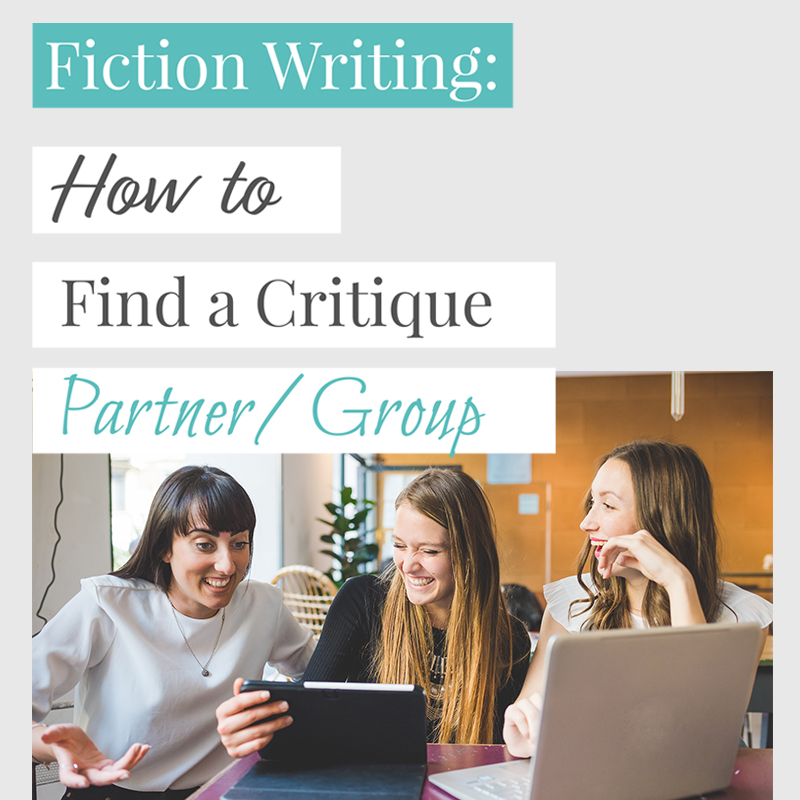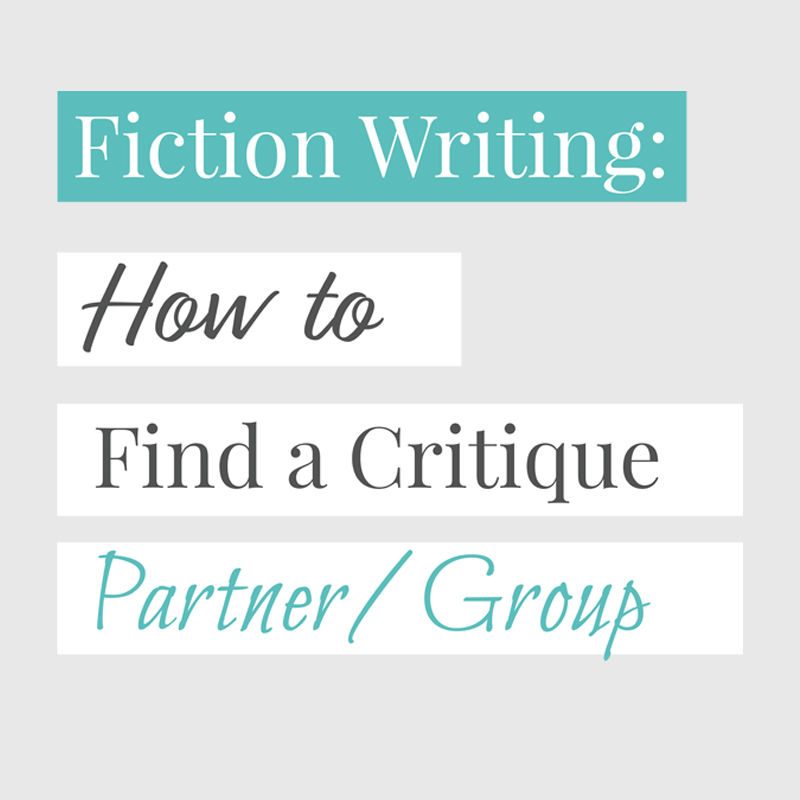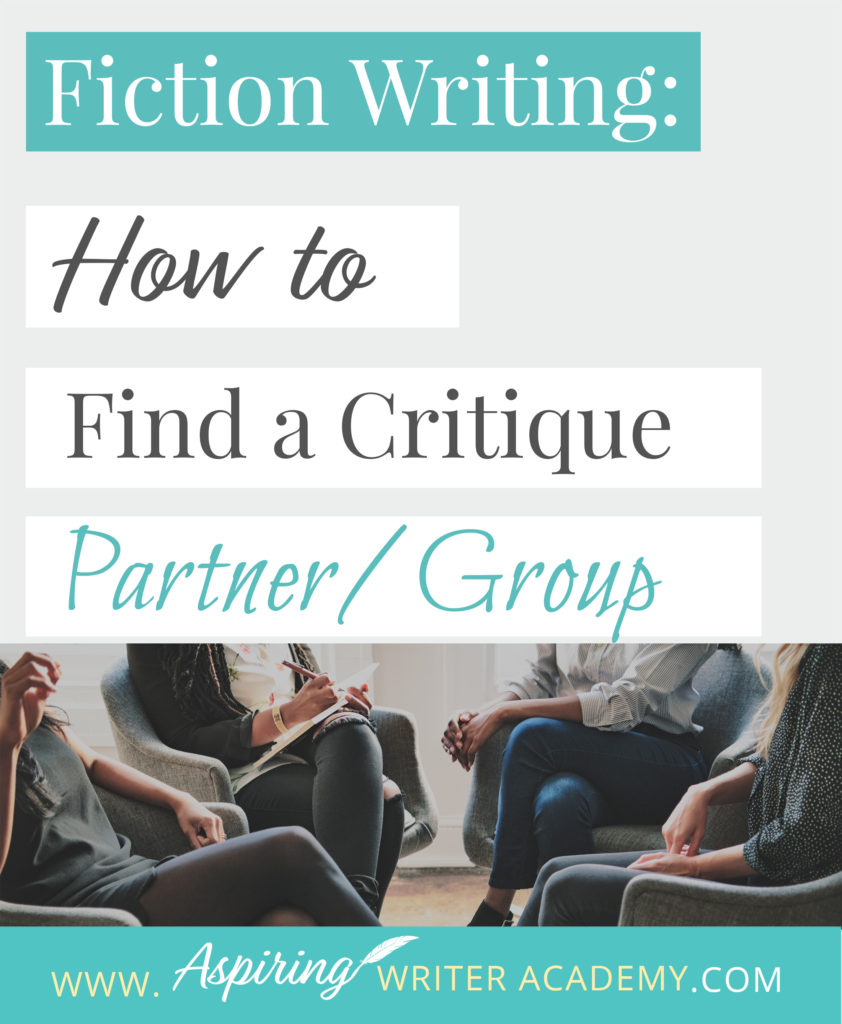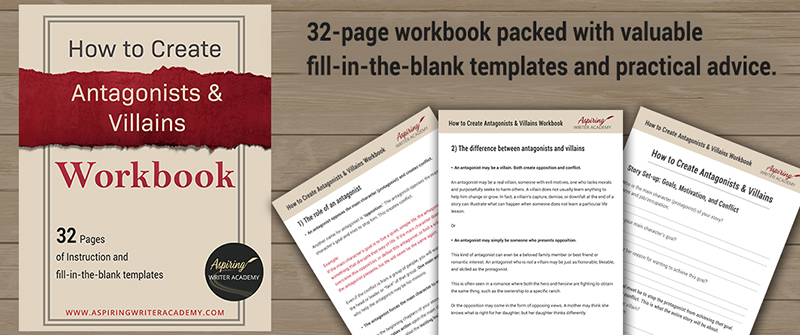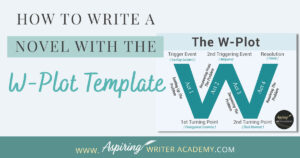Fiction Writing: How to Find a Critique Partner/Group

Do you have someone you trust to critique your work and give you valuable feedback? Someone who can point out inconsistencies with point-of-view, make suggestions for plot points, and offer tips to strengthen character motivation?
In our post, Fiction Writing: How to Find a Critique Partner/Group, we discuss how to connect with others, various ways a critique group can be run, and other considerations to ensure you bring out the best in each other’s writing!
You may be saying, Whoa! Wait a minute! Why do I need a critique partner?
A critique partner can help you brainstorm when you get stuck, offer advice to improve your story before it lands on an agent or editor’s desk, and commiserate with you when you get a rejection. We all need other people in our lives to share the journey on the long road to publication. Those who can identify with both the struggle and the joy of writing.
You may respond, Both my mother and my grandmother agreed to read my manuscript and they loved it! They said it was great!
Of course, they did. They love you and want to encourage you.
However, unless your relatives are career-oriented writers themselves, or a professional book editor, they most likely will not be able to offer you the kind of advice you need to improve your writing skills.
Follow along as we explore:
- Where you might find the right critique partner
- Basic ground rules and expectations
- Other critique group considerations

How do you find a critique partner or critique group? What qualities or traits should you be looking for?
The key to finding a critique partner or critique group is to network with others. As an aspiring writer it is so important to connect regularly with other writers. Join local writing groups in your area or join an online group, take classes, attend conferences. Numerous writing organizations help connect their members with arranged critique groups.
Personally, I would advise you to meet other writers in person and get to know them, find out what genre they write. See who might be a right fit for you, and then ask them if they would be interested in exchanging critiques.
- Find others who write in the same genre, someone who is at your own writing level or perhaps just slightly ahead of you in the craft. It doesn’t help if you hook up with a newbie who you need to teach or anyone who cannot offer valuable feedback to you in return. Before agreeing to be critique partners you should read a sample of each other’s work and start off on a trial basis.
- If you and your critique partner are both new and learning the writing craft, you can partner together to study How-To books on writing and discuss your insights with one another. Attend classes together or if you attend different classes, share what you’ve learned so you might both benefit. I know two women who did this, and both became NY Times bestselling authors as well as best friends.
- You might need to start your own critique group if you cannot find one in your area. Begin by reaching out to other writers in your region. You might ask the local librarian or bookstore personnel if they know of other local writers you can contact. Or if you go to a conference and meet a few friends who would like to critique, but who live in different states, set up an online critique group, perhaps on Zoom.
- Traits you may want to consider to help you find the right critique partner:
- Find someone who is as passionate about writing as you.
- Make sure your new critique partner will take the necessary time to carefully evaluate your story and isn’t someone who really only wants feedback on their own work. You don’t need ‘pretenders.’ It must be a give and take relationship.
- Find someone who is writing in your same genre, with similar wordcounts.
- Find someone who you can respect and trust with similar goals or values. Conflict will arise if one person wants to seriously improve their craft and the other person just wants to be told it is ‘good enough’ or just wants to ‘get by.’
- You need to find someone who can help brainstorm story ideas and offer solutions to problems that arise instead of just pointing them out.
- Also consider how the other writers in your group write. A category romance writer (45,000-55,000 wordcount) uses a completely different style of writing than an author who writes 80-90,000 words. Shorter novels have a sharper focus, use more concise words, and do not have very much room for subplots or sub-characters.
- Flash Fiction and short story writers may also not be able to help an epic novelist who writes tales over 100,000 words. There are all types of writing, and while input from different writers in different genres may give guidance, the truth is that the more you advance, the more you are going to need specific advice particular to your genre and style of writing. Otherwise, these other writers might start to steer you in the wrong direction.
- And if you cannot find a critique partner right away, you might consider dishing out some money for a paid editorial critique. There are numerous freelance editors who can offer advice on your manuscript. Again, you can do a Google search to find someone online, but the best is to ask your writing group for recommendations.

What kind of group will this be? How will it be run? Decide on ground rules.
Once you find a critique partner or group of partners, you must set some ground rules on how you would like to run your group.
- How often should you meet?
- Will you get together in person or online?
- How many pages at a time should each person send?
- Will you send your pages to one another beforehand to critique and then discuss the findings when you meet or read the pages at your meeting on the spot?
Reading spur of the moment may not allow your partners to absorb the story and allow it to dwell in their heads for more than a few moments. If the pages are sent ahead of time, your partner may think of other ideas and solutions and comments to offer over the course of a week or two that can be of real help to the author.
- Print pages or email pages? If emailed beforehand, should they be printed out to hand to the author at the meeting or emailed to them after the meeting?
- Will you use red ink or highlighter to critique? Or what color? Will everyone use a different color, so you know it is from that person?
- If working online, will you use ‘track changes’ and write notes in the sidebar of the online manuscript?
- Consider whether you would like to have food or not? Some critique groups have dinner and wine, others have snacks, while still others do not have any food at all.
While having food at your groups can be fun and add a social time to your gathering, do not let it take away from valuable critique time. The critiques should be the main focus. You also want to ensure each person at the critique group gets an equal amount of attention and that the last person’s critique isn’t rushed at the end because you are short on time.
- If you have a critique group, what is the limit regarding the number of people you let into your group? And how will a new member be voted into the group if one member leaves?
In my experience I have found that limiting your critique group to four people works best. More than that just seems to be too much. Remember that everyone should be reading each other’s pages and you also need time to write and work on your own manuscript. Serious working writers need to guard their time.
I know one critique group who met once a month and only critiqued 10 pages of each other’s work. There were about 10 people in the group. If you only get feedback on 10 pages of your work a month and need to write a 400-page novel, this is obviously not going to work. It would take years to get feedback on your entire novel. Serious working writers’ intent on building a career need honest, thoughtful feedback on several chapters at a time, not just a few pages.
- You may also want to consider whether you would like to get together once a year in a fun location for your own writer’s retreat? I know of four authors who get together each year for an entire weekend at a hotel and help plot out each other’s stories for the following year. They also celebrate each other’s accomplishments with cake and champagne.
Other critique groups go on an annual writer’s retreat where they rent out a cabin in the woods or an Airbnb where they can go for walks on the beach. The retreats give them more time to connect than just their regular critique meetings, especially if the meetings are usually done online or through Zoom.
Some critique groups plan to meet up together at the same yearly writer’s conference.

Endless Benefits:
However, finding a critique partner or joining a critique group can be the best decision that you ever make in your writing career.
Critique groups can be a valuable source of inspiration and offer guidance that can launch your writing to the next level.
They can be incredibly fun, insightful, and help you build life-long friendships if you are all serious about your writing and have one another’s best interests at heart.
I hope you have enjoyed reading, Fiction Writing: How to Find a Critique Partner/Group, and have discovered what traits you should be looking for, how you might establish ground rules and run your critique group sessions to ensure future success!
If you would like help outlining your story, you may want to download our Free Brainstorming Your Story Idea Worksheet.
Do you find it difficult to create compelling antagonists and villains for your stories? Do your villains feel cartoonish and unbelievable? Do they lack motivation or a specific game plan? Discover the secrets to crafting villains that will stick with your readers long after they finish your story, with our How to Create Antagonists & Villains Workbook.
This 32-page instructional workbook is packed with valuable fill-in-the-blank templates and practical advice to help you create memorable and effective antagonists and villains. Whether you're a seasoned writer or just starting out, this workbook will take your writing to the next level.
If you have any questions or would like to leave a comment below, we would love to hear from you!
Our Goal for Aspiring Writer Academy is to help people learn how to write quality fiction, teach them to publish and promote their work, and to give them the necessary tools to pursue a writing career.
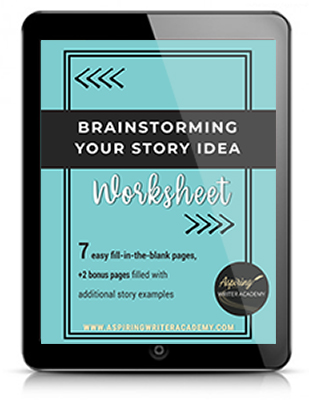
ENTER YOUR EMAIL BELOW
TO GET YOUR FREE
"Brainstorming Your Story Idea Worksheet"
7 easy fill-in-the-blank pages,
+ 2 bonus pages filled with additional story examples.
A valuable tool to develop story plots again and again.
Other Blog Posts You May Like
7 Steps to Begin Writing a New Fictional Story
Fiction Writing: How to Get a Literary Agent
How Writing Prompts Can Improve Your Fictional Story
Creative Writing: 5 Ways to Strengthen a Weak Fictional Character
Fiction Writing: Create a Storyboard to Map Out Your Scenes
Fiction Writing: How Specific Details Can Bring Your Setting to Life
How to Spot Publishing Scams & How To Avoid Them
5 Common Mistakes New Writers Make
Fiction Writing: Story Analysis of the movie “Passengers”
Fiction Writing: How to Write Compelling Dialogue
Fiction Writing: 5 Key Differences Between a Novel and a Novella
Pros & Cons of Traditional vs. Self-Publishing Fiction
3 Ways to Avoid Writing ‘Episodic’ Scenes in Fiction
Scene & Sequel: The Secret to Plotting an Epic Novel
Scene & Sequel: The Secret to Plotting an Epic Novel (Part 2)

is a multi-published author, speaker, and writing coach. She writes sweet contemporary, inspirational, and historical romance and loves teaching aspiring writers how to write quality fiction. Read her inspiring story of how she published her first book and launched a successful writing career.





